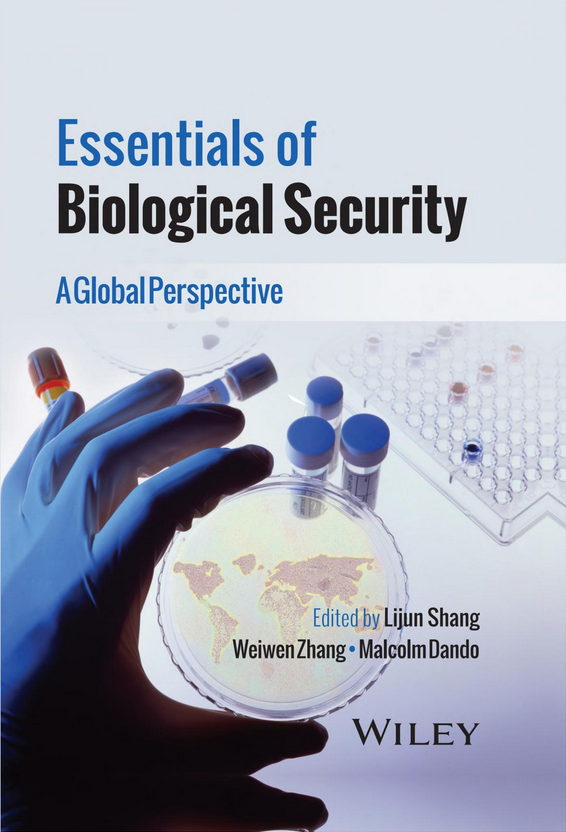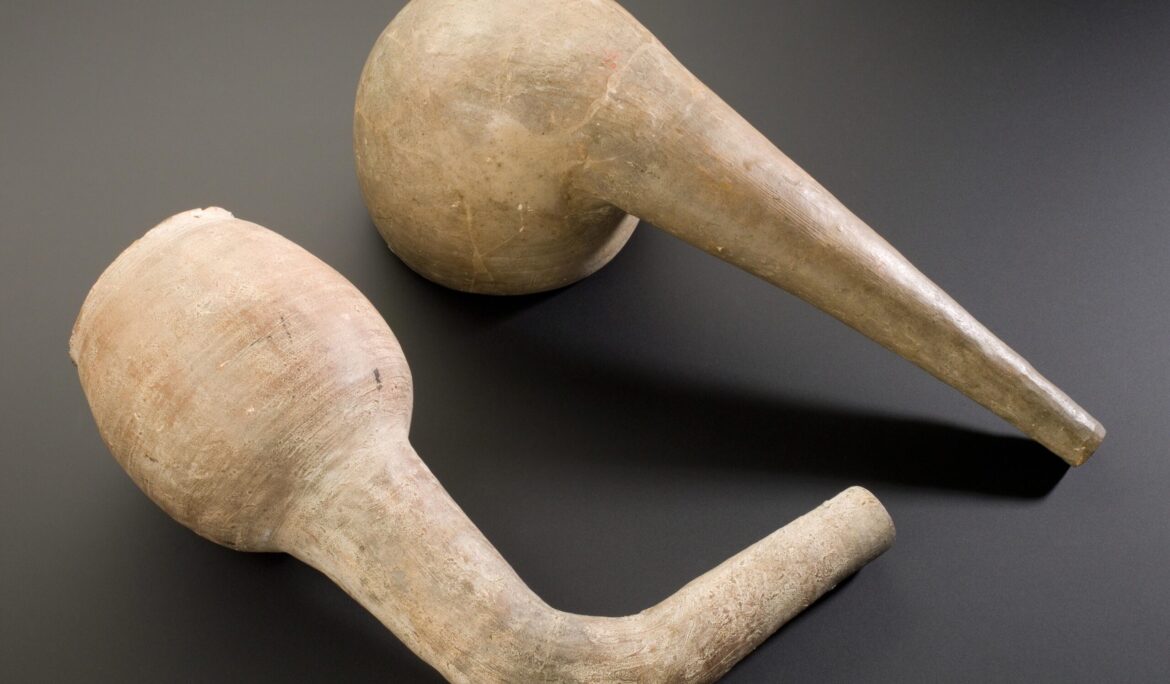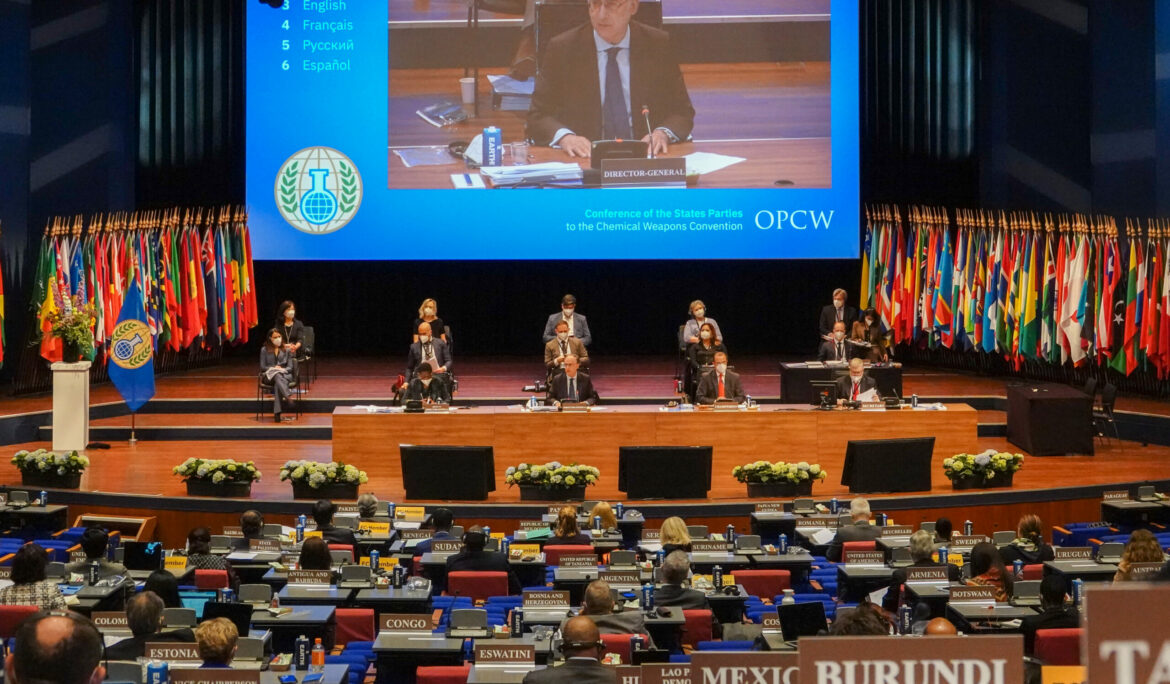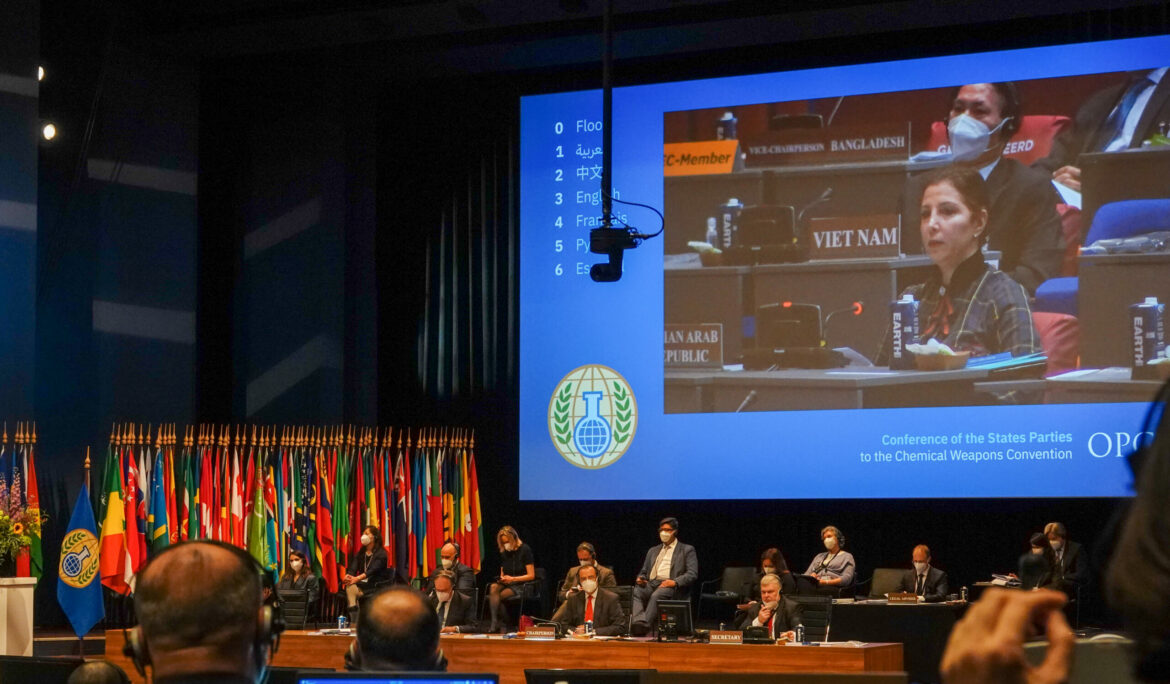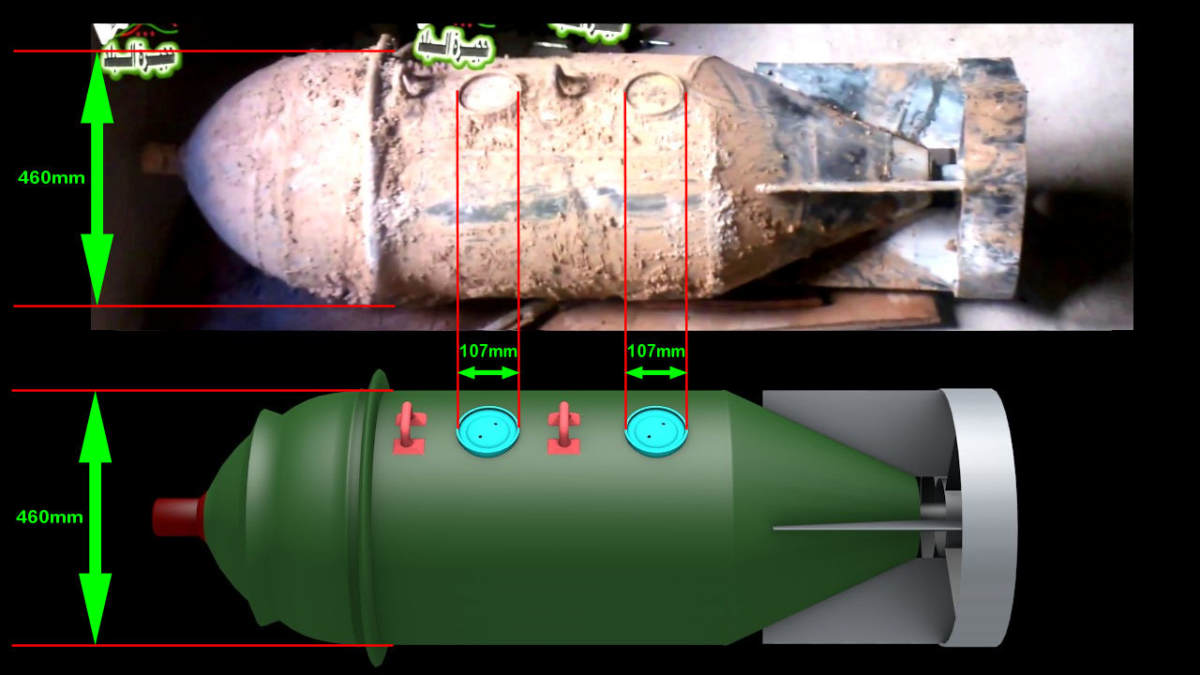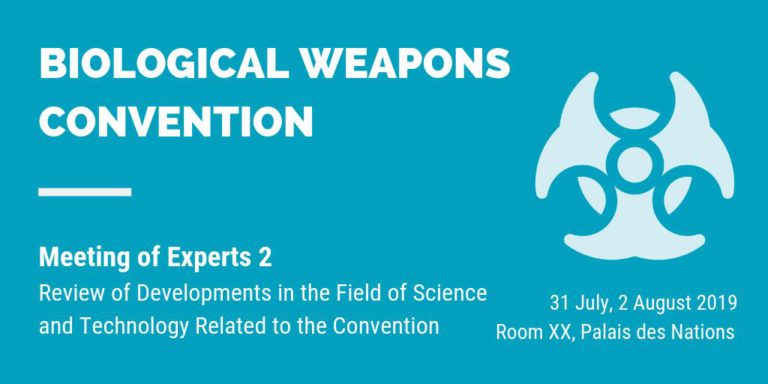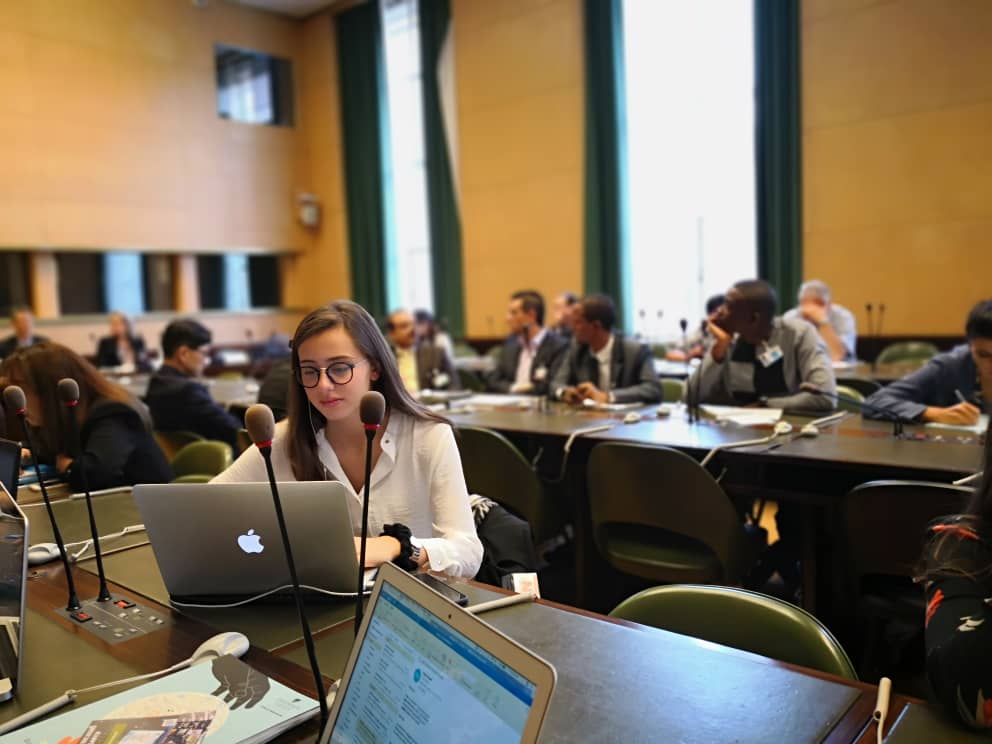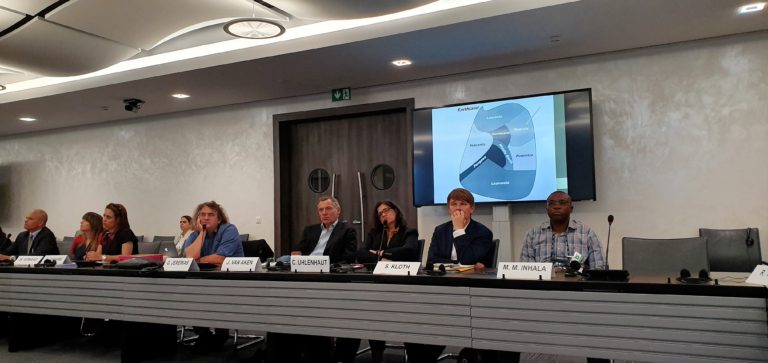Falling between the Cracks and by the Sides
Next month, Essentials of Biological Security: A Global Perspective edited by Lijun Shang, Weiwen Zhang and Malcolm Dando will be published. The book offers an introduction to biological security and the chemical and biological weapons (CBW) threat spectrum and explores the history of biological weapons from antiquity to modern day. Its core comprises expert analyses of the Biological and Toxin Weapons Convention and other relevant international agreements and organisations and practical discussions of dual-use technologies and how to minimise their risk. (For a preview of the book contents, click here.) I contributed the chapter Falling between the Cracks and by …
The Retort: Evolving CBW disarmament challenges
Dr Brett Edwards (Lecturer, University of Bath) and Professor Lijun Shang (School of Human Sciences, Metropolitan University London) are collaborating on The Retort, a new series of educational video recordings via YouTube on chemical and biological weapons (CBW), their disarmament, and the evolving threats they still pose. The recordings aim to give the public a general understanding of issues ahead of the review conferences of the Biological and Toxin Weapons Convention (28 November – 16 December 2022) and the Chemical Weapons Convention (May 2023). For each video recording, the intiative takers invite an expert in the field. So far, three …
Remarks at the CWCC webinar on ‘Reinforcing the Norm Against Chemical Weapons’
Remarks at the webinar Reinforcing the Norm Against Chemical Weapons: The April 20-22 Conference of States Parties to the Chemical Weapons Convention, organised by the Chemical Weapons Convention Coalition and the Arms Control Association, 10 May 2021 Director-General Arias, Ambassador Helfand, Ambassador Lingner, Participants, I am pleased to join this webinar of the global non-governmental platform, the Chemical Weapons Convention Coalition (CWCC). As a CWCC member from the start, I wish to express my gratitude to Paul Walker, who has been the engine behind the initiative for as long as it has existed, and to the states parties to …
Sanctioning Syria: An Analysis of the OPCW Vote
The Organisation for the Prohibition of Chemical Weapons (OPCW) completed its 25th session of the Conference of the States Parties (CSP) on 22 April, the 106th anniversary of the first massive use of chlorine as a warfare agent in the First World War. Due to the sanitary restrictions to contain the global coronavirus pandemic, the OPCW spread the CSP-25 over two sittings. The first one took place on 30 November and 1 December 2020. Its primary objective was the adoption of the work programme and budget for 2021, which the states parties to the Chemical Weapons Convention (CWC) could not …
Syria stands formally accused of violating the Chemical Weapons Convention
The Executive Council of the Organisation for the Prohibition of Chemical Weapons (OPCW) held its 94th session from 7–10 July. Prominent on the agenda was the determination by the Investigation and Identification Team (IIT) that ‘there are reasonable grounds to believe’ that Syrian government forces bear responsibility for several chemical weapon (CW) attacks at the end of March 2017. The finding is the first time that the Technical Secretariat of the OPCW has formally charged a state party to the Chemical Weapons Convention (CWC) with violating Article I, para. 1(b) to never under any circumstances use CW. The accusation is …
Palestine’s withdrawal of its instrument of accession to the CWC (Part 2)
In my blog posting of 16 January entitled ‘Palestine: From a “will-be” party to the CWC to a “would-have-been”?’, I described how Palestine submitted its instrument of accession to the Chemical Weapons Convention (CWC) with the UN Secretary-General on 29 December, only to withdraw it on 8 January. Since having achieved the status of ‘UN non-member observer state’ in 2012, Palestine has joined over 50 international agreements, including the Biological and Toxin Weapons Convention, to which it became formally a party on 16 January. The CWC is the only treaty on which it reversed its position. Retracting an instrument of …
Blog 2 – Experiences of a student at the Meetings of Experts of the Biological and Toxin Weapons Convention
This second blog post covers both the second and third Meetings of Experts (MXs) of the Biological and Toxin Weapons Convention (BTWC). MX2 on science and technology took place on 31 July and 2 August (the day in between being the Swiss national day); MX3 on strengthening national implementation of the BTWC was a one-day event on 5 August. MX2 impressions Like at the start of the week I was still sitting behind The Trench nameplate, which was formally represented for the first time in these five MXs of 2019. MX2 was chaired by Mr Yury Nikolaichik of Belarus who decided to …
Disarmament education: Road-testing a master’s course on CBRN dual-use technology transfer controls
From 17 until 28 June I ran an Executive Course on Export Control at the M. Narikbayev KAZGUU University in Nur-Sultan (formerly Astana), Kazakhstan. Its goal was twofold. First, it tested in a real university setting parts of a master’s course on chemical, biological, radiological and nuclear (CBRN) dual-use technology transfer controls I have been developing since February 2018. Its second purpose was to attract interest in organising the full master’s course from other Central Asian academic institutes. Set in the broader context of peace and disarmament education, the Executive Course posed considerable challenges from the perspective of educational methodology …
Blog 1 – Experiences of a student at the Meetings of Experts of the Biological and Toxin Weapons Convention
I am Chiara Barbeschi and study Security Studies (BSc) at Leiden University in the Netherlands. Interning at The Trench and representing the non-governmental organisation (NGO) as a Research Associate at the five Meetings of Experts (MXs) of the Biological and Toxin Weapons Convention (BTWC) is an incredible opportunity that Jean Pascal Zanders granted me. Blogging about it is a chance of sharing my perspective, impressions and account of the conference. I know that there are also the daily factual reports Richard Guthrie writes and distributes in the meeting room. My posts convey the thoughts of a student experiencing the BTWC meetings for the first time. MX1 (29 – …
Third tabletop exercise on emergency assistance in case of biological weapon use – First impressions
The day after the presentation of the report on the Article VII tabletop exercise (TTX) held in Lomé, Togo on 29 and 30 May to the states parties of the Biological and Toxin Weapons Convention (BTWC), the Fondation pour la recherche stratégique (FRS) and the BTWC Implementation Support Unit (ISU) ran another TTX in the United Nations building in Geneva. This time the focus was on a series of anthrax outbreaks that affected mostly herd animals, but also led to multiple human casualties. The scenario was a deliberate attempt to break with the habitual simulations of increasingly dire human pandemics. After all, the BTWC covers …

